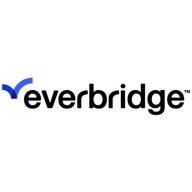

PagerDuty Operations Cloud and xMatters are prominent in the incident management sector, offering competitive solutions focused on notification and escalation. PagerDuty seems to have an edge with its automatic incident escalation and versatile notification methods, while xMatters is favored for its seamless ITSM integration, reducing incident resolution times.
Features: PagerDuty offers automatic incident escalation, detailed alert customization, and diverse notification methods, which users value for reliability and flexibility across various platforms. The system's high-level notification capabilities are appreciated for ensuring critical alerts are never missed. xMatters is integrated with ITSM solutions, offering fine-tuned on-call schedule management and automation that enhance incident response efficiency. These features significantly improve communication workflows and reduce manual intervention, benefiting large-scale operations.
Room for Improvement: PagerDuty users desire better noise suppression and more extensive integrations with standard tools like Jira and Confluence. The complex interface for managing escalation policies is also a noted concern. xMatters needs a more flexible pricing model, and users report challenges with integrating custom attributes and dynamic teams. Both products could enhance reporting and logging capabilities to provide more insightful data analysis.
Ease of Deployment and Customer Service: PagerDuty supports diverse hosting options and is praised for smooth deployment and responsive support, covering public and private clouds, as well as on-prem solutions. xMatters, often deployed in private or hybrid clouds, also enjoys high ratings for customer service, with minimal direct support needed due to efficient internal procedures. Both platforms have reputations for delivering high-quality technical support.
Pricing and ROI: PagerDuty's structured licensing and flexible pricing offer good ROI, though the cost is seen as steep by some due to limited tiers. In contrast, xMatters provides scalable licensing, enabling cost alignment with real service needs despite being considered pricey. Both solutions contribute to measurable ROI through efficient incident management and enhanced operational continuity, depending on how their pricing models meet organizational requirements.


The PagerDuty Operations Cloud is the platform for mission-critical, time-critical operations work in the modern enterprise. Through the power of AI and automation, it detects and diagnoses disruptive events, mobilizes the right team members to respond, and streamlines infrastructure and workflows across your digital operations. The Operations Cloud is essential infrastructure for revolutionizing digital operations to compete and win as a modern digital business.
PagerDuty Features
PagerDuty has many valuable key features. Some of the most useful ones include:
PagerDuty Benefits
There are many benefits to implementing PagerDuty. Some of the biggest advantages the solution offers include:
Reviews from Real Users
Below are some reviews and helpful feedback written by PeerSpot users currently using the PagerDuty solution.
Brandon J., Director of engineering at a wellness & fitness company, says, "The SMS pages and the mobile application are pretty much the top two features."
PeerSpot reviewer Pramodh M., DevSecOps Consultant at a tech services company, comments, “The inbound integrations that PagerDuty provides with most of the DevOps tools are valuable. There is a flexible and easy way of integrating with monitoring tools. It allows us to configure the integration with APIs and plugins as well.”
Syed Mohammad A., Vice President - Operations and Client Services at a financial services firm, mentions, "PagerDuty let us set up rosters based on our shifts. We could assign a hierarchy for how the calls should be escalated and the number of times the call will be transferred between people before it is answered. It makes it easy to access an agent via mobile phone."
A Principal Architect at an energy/utilities company states, “The most important feature that is used is call scheduling. We are also able to actually call IT folks in the case of an emergency.”
xMatters, an Everbridge company, is a service reliability platform that helps DevOps, SREs, and operations teams rapidly deliver products at scale by automating workflows and ensuring infrastructure and applications are always working. The xMatters code-free workflow builder, adaptive approach to incident management, and real-time performance analytics all support a single goal: deliver customer happiness.
To learn more, request a demo.
We monitor all IT Alerting and Incident Management reviews to prevent fraudulent reviews and keep review quality high. We do not post reviews by company employees or direct competitors. We validate each review for authenticity via cross-reference with LinkedIn, and personal follow-up with the reviewer when necessary.